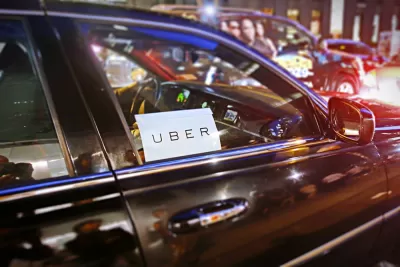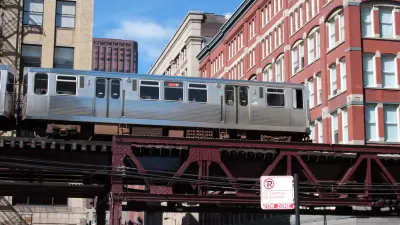Low-cost Uber and Lyft services helped some neighborhoods thrive, making them more accessible. Now these same neighborhoods are feeling the pinch as high ride-hailing costs push customers to stay closer to home.

After years of operating at unsustainably low costs, ride-hailing companies Uber and Lyft are hiking prices, making some neighborhoods less accessible than they once were. “A dwindling supply of drivers, rising interest rates and the decline of cash infusions from patient venture capitalists has squeezed those apps, leading outlets like Slate to declare in May that ‘The Decade of Cheap Rides Is Over,’” writes Jacob Wallace in Bisnow.
Now, businesses in neighborhoods popular with ride-hailing customers are noticing the impact as consumers make more judicious decisions about their transportation habits. “These changing behaviors have meant businesses in those neighborhoods are struggling to bring their customers back, and in some cases closures are forcing landlords to contend with vacant spaces.” Meanwhile, public transit agencies, rather than introduce service in areas where Uber and Lyft were filling the gap, focused their resources on boosting service frequency and reliability on popular lines, leaving transit-poor neighborhoods to fall by the wayside.
The article profiles some Washington, D.C. businesses that are struggling or have closed in the wake of rising transportation costs and reduced foot traffic. Some are considering a move to more transit-oriented neighborhoods, where real estate may cost more, signaling a potential return of these newly-gentrifying areas to their more industrial pasts.
FULL STORY: As Uber And Lyft Prices Rise, Some Neighborhoods May Fall

Planetizen Federal Action Tracker
A weekly monitor of how Trump’s orders and actions are impacting planners and planning in America.

Map: Where Senate Republicans Want to Sell Your Public Lands
For public land advocates, the Senate Republicans’ proposal to sell millions of acres of public land in the West is “the biggest fight of their careers.”

Restaurant Patios Were a Pandemic Win — Why Were They so Hard to Keep?
Social distancing requirements and changes in travel patterns prompted cities to pilot new uses for street and sidewalk space. Then it got complicated.

Platform Pilsner: Vancouver Transit Agency Releases... a Beer?
TransLink will receive a portion of every sale of the four-pack.

Toronto Weighs Cheaper Transit, Parking Hikes for Major Events
Special event rates would take effect during large festivals, sports games and concerts to ‘discourage driving, manage congestion and free up space for transit.”

Berlin to Consider Car-Free Zone Larger Than Manhattan
The area bound by the 22-mile Ringbahn would still allow 12 uses of a private automobile per year per person, and several other exemptions.
Urban Design for Planners 1: Software Tools
This six-course series explores essential urban design concepts using open source software and equips planners with the tools they need to participate fully in the urban design process.
Planning for Universal Design
Learn the tools for implementing Universal Design in planning regulations.
Heyer Gruel & Associates PA
JM Goldson LLC
Custer County Colorado
City of Camden Redevelopment Agency
City of Astoria
Transportation Research & Education Center (TREC) at Portland State University
Camden Redevelopment Agency
City of Claremont
Municipality of Princeton (NJ)




























